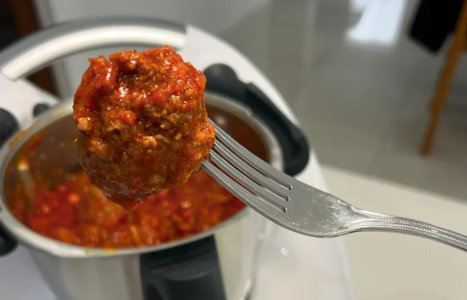Slash Your Grocery Bill Instantly with These 6 Earth-Shattering Trick!
By
Gian T
- Replies 11
Ah, the grocery bill – it's like a relentless tide, washing away our hard-earned cash week after week. But fear not, dear members of the Seniors Discount Club, because we've got some earth-shattering hacks that will help you keep your wallet plump and your pantry stocked without breaking the bank. Let's dive into the savvy shopping world and uncover the secrets to slashing that grocery bill.
1. **Plan, Plan, Plan!**
Before you even think about stepping foot in a supermarket, have a plan. Meal planning is your best friend when it comes to saving money. By knowing exactly what you need for the week's meals, you'll avoid impulse buys and wastage. Create a menu for the week, check what you already have in your pantry, and make a list. Stick to it like glue!
2. **Embrace Seasonal Produce**
Seasonal fruits and veggies are not only fresher and tastier, but they're also cheaper. Nature's bounty is plentiful when produce is in season, so prices drop. This is a great time to buy in bulk and preserve, whether by freezing, canning, or drying. Plus, you'll support local farmers, which is always a win-win.
3. **Loyalty Programs and Coupons**
Don't underestimate the power of loyalty cards and coupons. Supermarkets often offer discounts and specials to cardholders, and those cents off here and there can add up to significant savings. Keep an eye out for catalogues and online coupons, too. Just be sure to use them wisely – only for items you actually need.
4. **Go Generic**
Brand loyalty can cost you. Many generic or store-brand items are just as good as their branded counterparts but come with a smaller price tag. Give them a try, and you might be surprised at the quality. Remember, you're paying for the product, not the name on the label.
5. **Buy in Bulk**
Buying in bulk can lead to big savings, especially for non-perishable items. Think rice, pasta, canned goods, and toilet paper. If you have the storage space, stock up when prices are low. Just be careful not to buy more than you can use before it expires.
6. **Reduce Meat Consumption**
Meat can be one of the most expensive items in your cart. Consider having a few meatless meals each week. Beans, lentils, and eggs are excellent, cost-effective protein sources. Not only will you save money, but you'll also be doing your health and the environment a favour.
Now, let's not forget the importance of checking your receipts. Mistakes can happen, and you might be charged for items you didn't buy or at the wrong prices. Always take a moment to review your receipt before leaving the store.
And remember, while it's great to save money, it's also important to treat yourself occasionally. Budget for a little indulgence now and then – it's all about balance.
 We'd love to hear from you, our wise and worldly readers. What are your top tips for keeping the grocery bill in check? Have you tried any of these hacks, and how have they worked for you? Share your experiences in the comments below, and let's help each other save those precious dollars!
We'd love to hear from you, our wise and worldly readers. What are your top tips for keeping the grocery bill in check? Have you tried any of these hacks, and how have they worked for you? Share your experiences in the comments below, and let's help each other save those precious dollars!
1. **Plan, Plan, Plan!**
Before you even think about stepping foot in a supermarket, have a plan. Meal planning is your best friend when it comes to saving money. By knowing exactly what you need for the week's meals, you'll avoid impulse buys and wastage. Create a menu for the week, check what you already have in your pantry, and make a list. Stick to it like glue!
2. **Embrace Seasonal Produce**
Seasonal fruits and veggies are not only fresher and tastier, but they're also cheaper. Nature's bounty is plentiful when produce is in season, so prices drop. This is a great time to buy in bulk and preserve, whether by freezing, canning, or drying. Plus, you'll support local farmers, which is always a win-win.
3. **Loyalty Programs and Coupons**
Don't underestimate the power of loyalty cards and coupons. Supermarkets often offer discounts and specials to cardholders, and those cents off here and there can add up to significant savings. Keep an eye out for catalogues and online coupons, too. Just be sure to use them wisely – only for items you actually need.
4. **Go Generic**
Brand loyalty can cost you. Many generic or store-brand items are just as good as their branded counterparts but come with a smaller price tag. Give them a try, and you might be surprised at the quality. Remember, you're paying for the product, not the name on the label.
5. **Buy in Bulk**
Buying in bulk can lead to big savings, especially for non-perishable items. Think rice, pasta, canned goods, and toilet paper. If you have the storage space, stock up when prices are low. Just be careful not to buy more than you can use before it expires.
6. **Reduce Meat Consumption**
Meat can be one of the most expensive items in your cart. Consider having a few meatless meals each week. Beans, lentils, and eggs are excellent, cost-effective protein sources. Not only will you save money, but you'll also be doing your health and the environment a favour.
Now, let's not forget the importance of checking your receipts. Mistakes can happen, and you might be charged for items you didn't buy or at the wrong prices. Always take a moment to review your receipt before leaving the store.
And remember, while it's great to save money, it's also important to treat yourself occasionally. Budget for a little indulgence now and then – it's all about balance.
Key Takeaways
- The author of the article reflects on how their perspective on the value of $500 has changed over time, especially after having kids.
- The cost of grocery shopping for a family of five every week can equate to a significant amount of money, such as $500.
- The article implies that managing a grocery budget is an important part of household financial planning, especially for larger families.
- The author suggests that saving money on groceries is a pressing and relatable concern, hinting that the article will provide practical hacks to cut down on grocery expenses.








